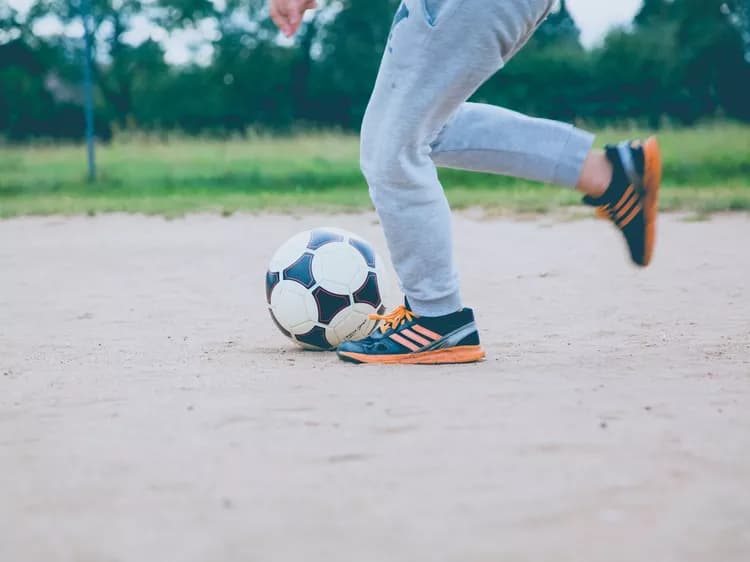
Inactivity In Obese Mice Linked To A Decreased Motivation To Move
Starting a regular program at the gym is a common New Year's resolution, but it's one that most people are unable to stick with for very long. Now a study done in mice is providing clues about one of the reasons why it may be hard for so many people to stick with an exercise program. The investigators found that in obese mice, physical inactivity results from altered dopamine receptors rather than excess body weight. The report appears in Cell Metabolism on December 29.
"We know that physical activity is linked to overall good health, but not much is known about why people or animals with obesity are less active," says the study's senior author Alexxai V. Kravitz, an investigator in the Diabetes, Endocrinology, and Obesity Branch at the National Institute of Diabetes and Digestive and Kidney Diseases -- part of the National Institutes of Health. "There's a common belief that obese animals don't move as much because carrying extra body weight is physically disabling. But our findings suggest that assumption doesn't explain the whole story."
Kravitz has a background in studying Parkinson's disease, and when he began conducting obesity research a few years ago, he was struck by similarities in behavior between obese mice and Parkinsonian mice. Based on that observation, he hypothesized that the reason the mice were inactive was due to dysfunction in their dopamine systems.
"Other studies have connected dopamine signaling defects to obesity, but most of them have looked at reward processing -- how animals feel when they eat different foods," Kravitz says. "We looked at something simpler: dopamine is critical for movement, and obesity is associated with a lack of movement. Can problems with dopamine signaling alone explain the inactivity?"
In the study, mice were fed either a standard or a high-fat diet for 18 weeks. Beginning in the second week, the mice on the unhealthy diet had higher body weight. By the fourth week, these mice spent less time moving and got around much more slowly when they did move. Surprisingly, the mice on high-fat diet moved less before they gained the majority of the weight, suggesting that the excess weight alone was not responsible for the reduced movements.
The investigators looked at six different components in the dopamine signaling pathway and found that the obese, inactive mice had deficits in the D2 dopamine receptor. "There are probably other factors involved as well, but the deficit in D2 is sufficient to explain the lack of activity," says Danielle Friend, first author and former NIDDK postdoctoral fellow.
The team also studied the connection between inactivity and weight gain, to determine if it was causative. By studying lean mice that were engineered to have the same defect in the D2 receptor, they found that those mice did not gain weight more readily on a high-fat diet, despite their lack of inactivity, suggesting that weight gain was compounded once the mice start moving less.
"In many cases, willpower is invoked as a way to modify behavior," Kravitz says. "But if we don't understand the underlying physical basis for that behavior, it's difficult to say that willpower alone can solve it."
He adds that if we begin to decipher the physiological causes for why people with obesity are less active, it may also help reduce some of the stigma that they face. Future research will focus on how unhealthy eating affects dopamine signaling. The researchers also plan to look at how quickly the mice recover to normal activity levels once they begin eating a healthy diet and losing weight.
Materials provided by Cell Press. Note: Content may be edited for style and length.
Disclaimer: DoveMed is not responsible for the accuracy of the adapted version of news releases posted to DoveMed by contributing universities and institutions.
Primary Resource:
Friend, D. M., Devarakonda, K., O'Neal, T. J., Skirzewski, M., Papazoglou, I., Kaplan, A. R., ... & Alvarez, V. A. (2016). Basal Ganglia Dysfunction Contributes to Physical Inactivity in Obesity. Cell Metabolism. DOI: 10.1016/j.cmet.2016.12.001
Related Articles
Test Your Knowledge
Asked by users
Related Centers
Related Specialties
Related Physicians
Related Procedures
Related Resources
Join DoveHubs
and connect with fellow professionals

0 Comments
Please log in to post a comment.